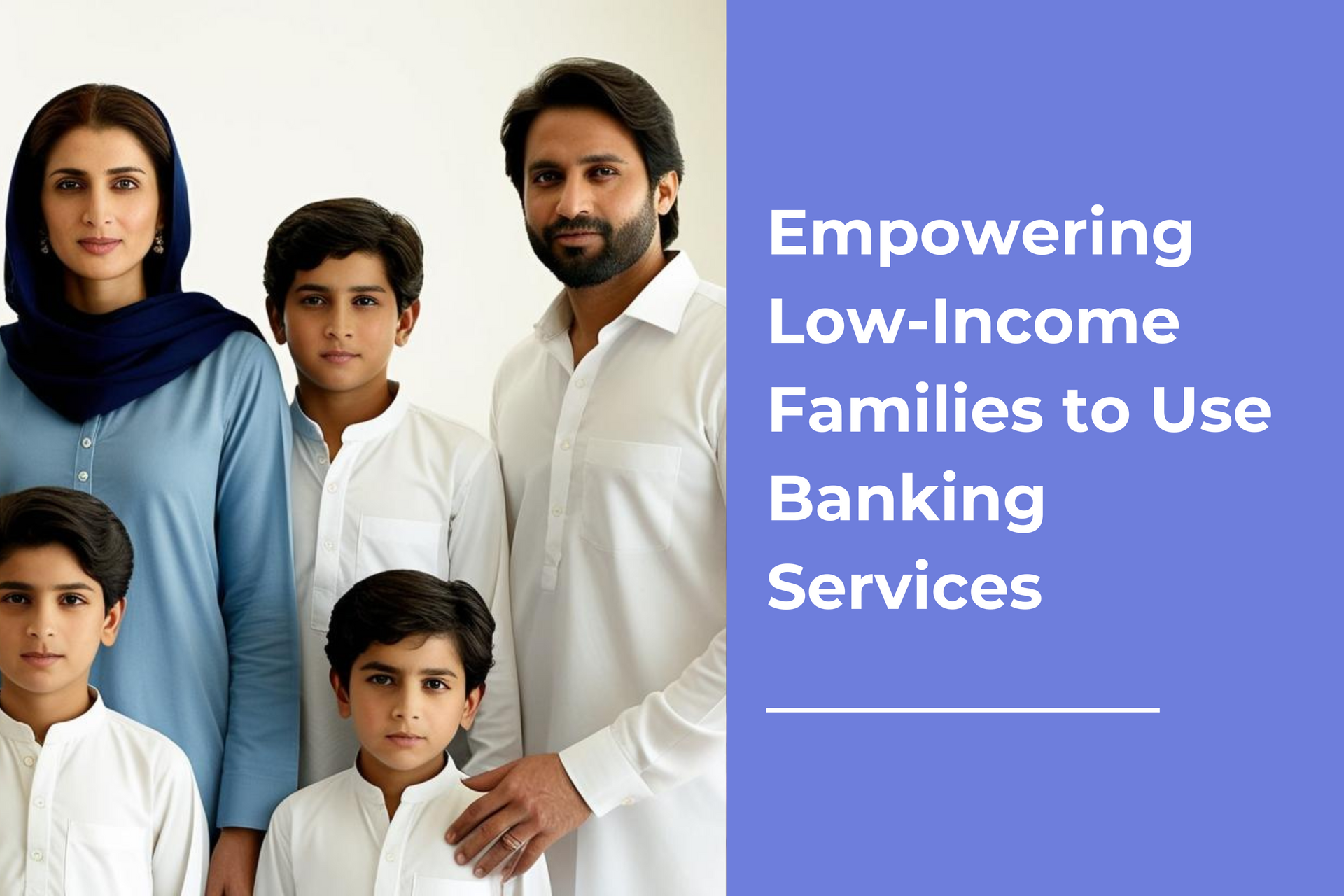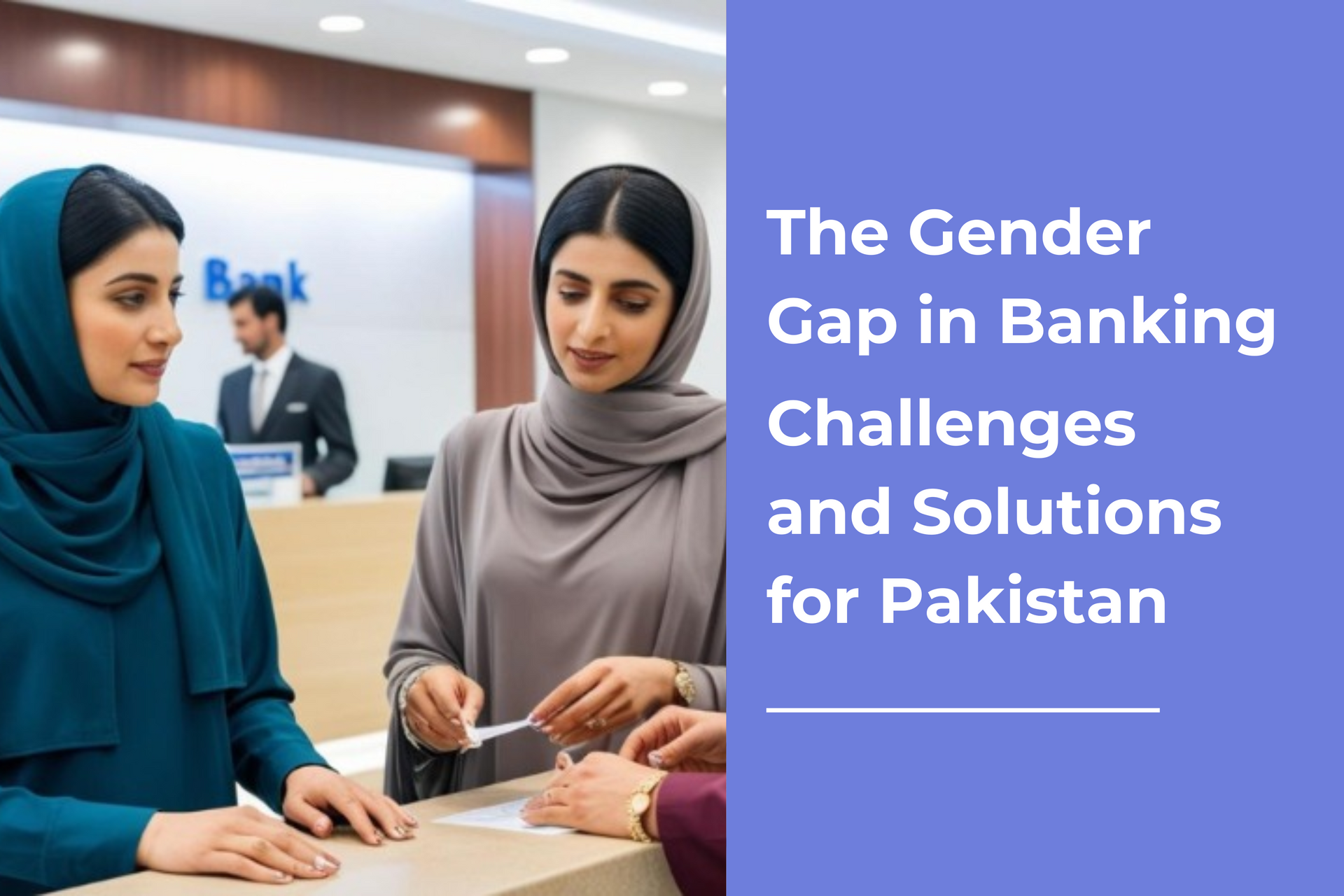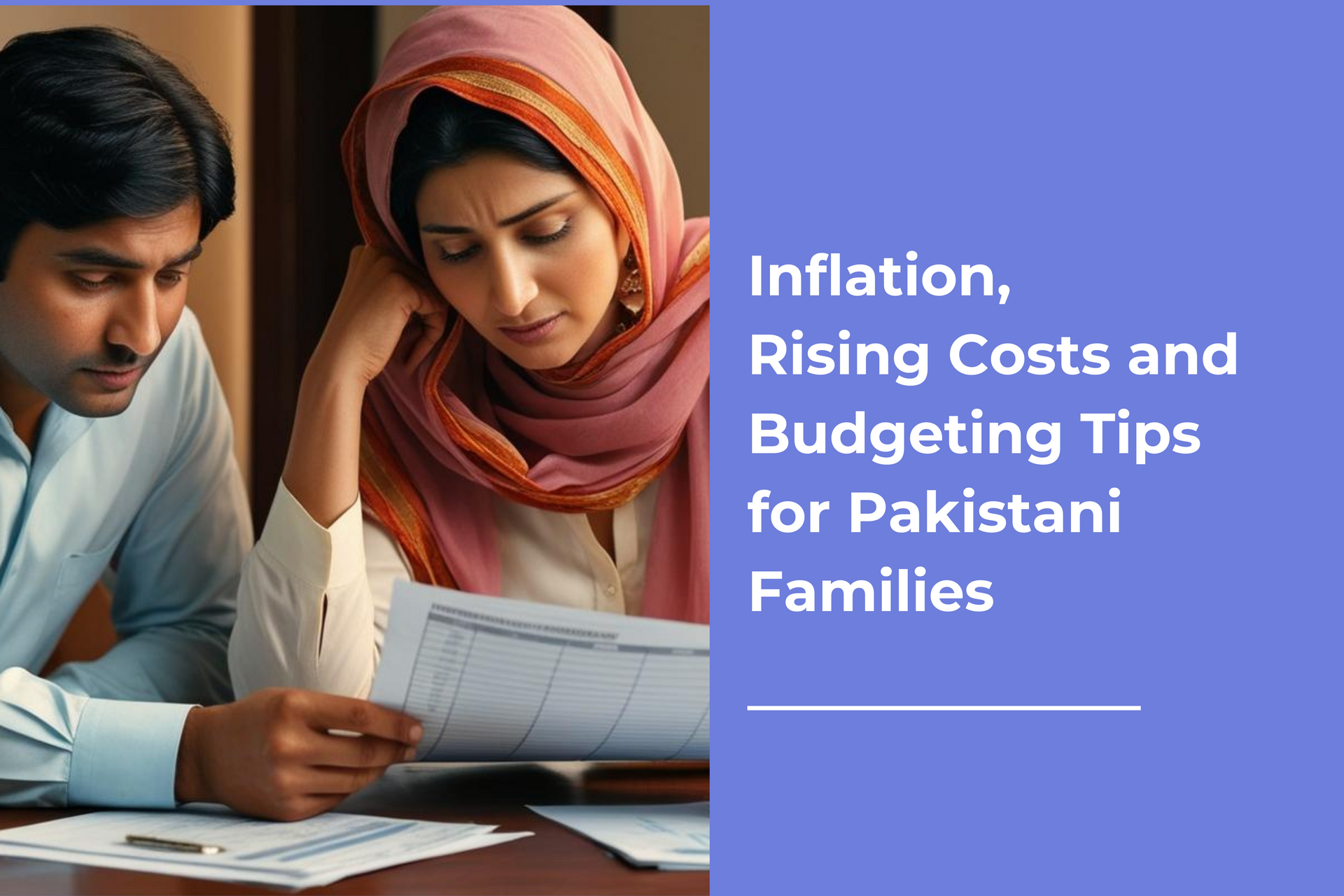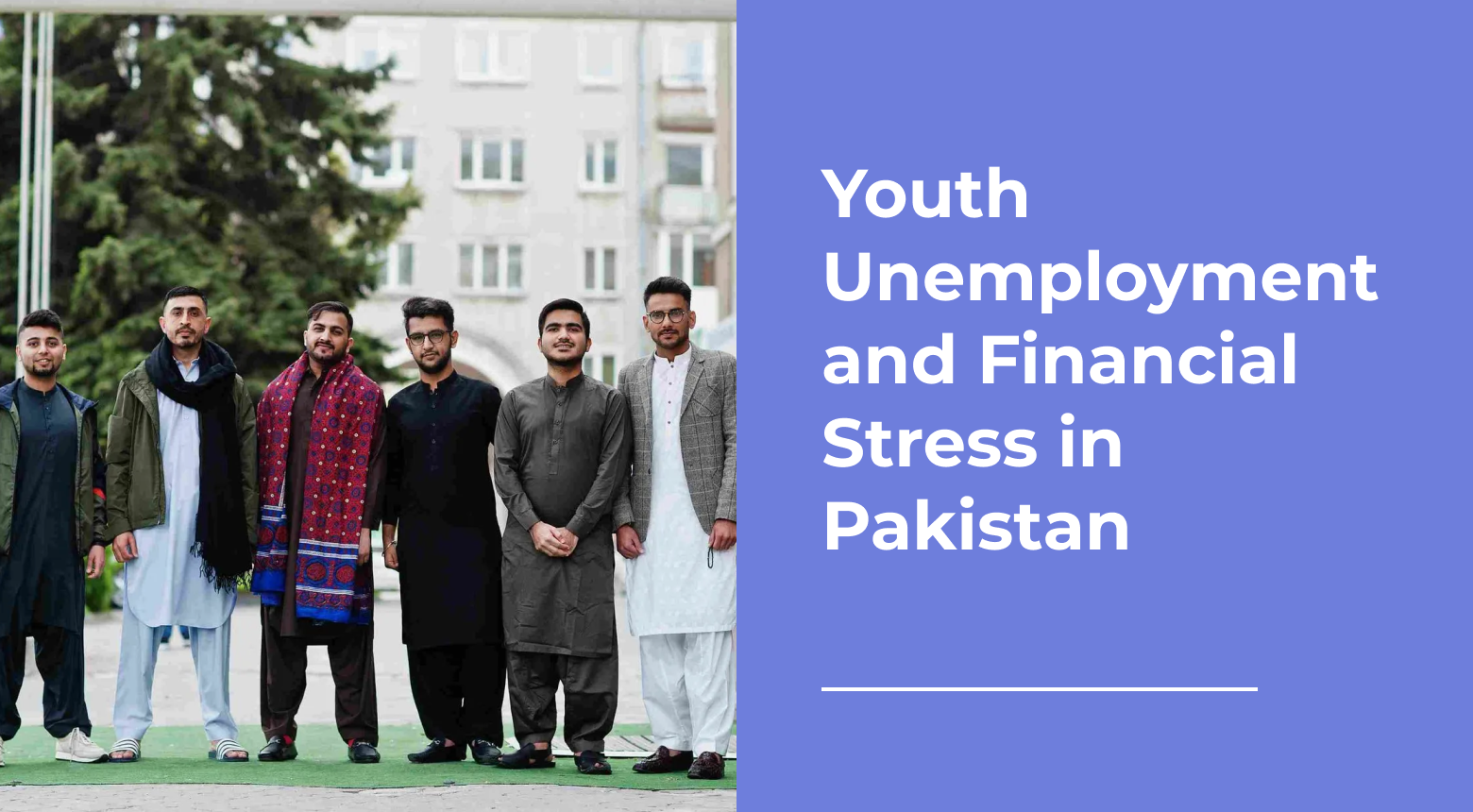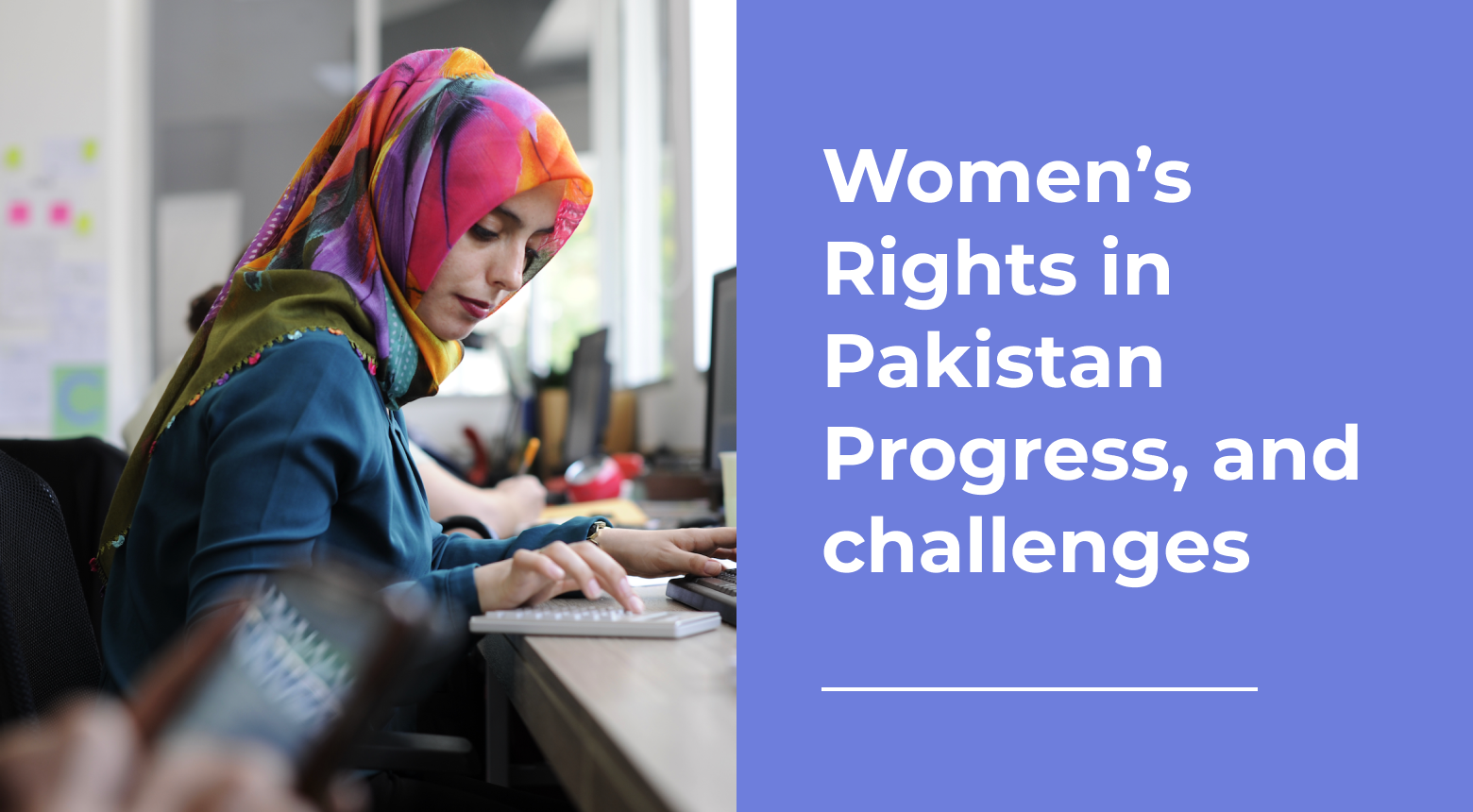

Have you ever felt like the weight of the world is on your shoulders, but there’s no one to talk to about it? In Pakistan, this feeling is all too familiar for millions of individuals grappling with mental health issues. The stats are shocking each year, nearly 20,000 suicides are reported, and for every suicide, there are countless untold stories of self-harm, depression, and silent suffering. It’s time to face the silence, break the stigma, and start talking about mental health in a way that truly matters.
Mental Health Crisis in Pakistan
Mental health in Pakistan is no longer something we can ignore.
In 2015, Pakistan's suicide rate was approximately 9 deaths per 100,000 people, slightly below the global average. However, this number doesn’t capture the full scope of the issue approximately 34% of Pakistanis suffer from common mental disorders, with depression being a significant contributor. Depression is thought to be a factor in more than 90% of suicides in the country.

But the numbers only tell part of the story every day, on average 50 to 55 lives are lost, often due to academic pressure, family disputes, and economic instability. For young Pakistanis aged 15 to 29, suicide has become the fourth leading cause of death, underscoring the urgency of the situation.
Yet, despite the increasing toll, discussions around mental health continue to be shrouded in silence. It’s a topic that remains taboo one that many avoid out of fear, shame, or lack of understanding.
But here’s the thing: silence only deepens the problem. We need to break that silence.
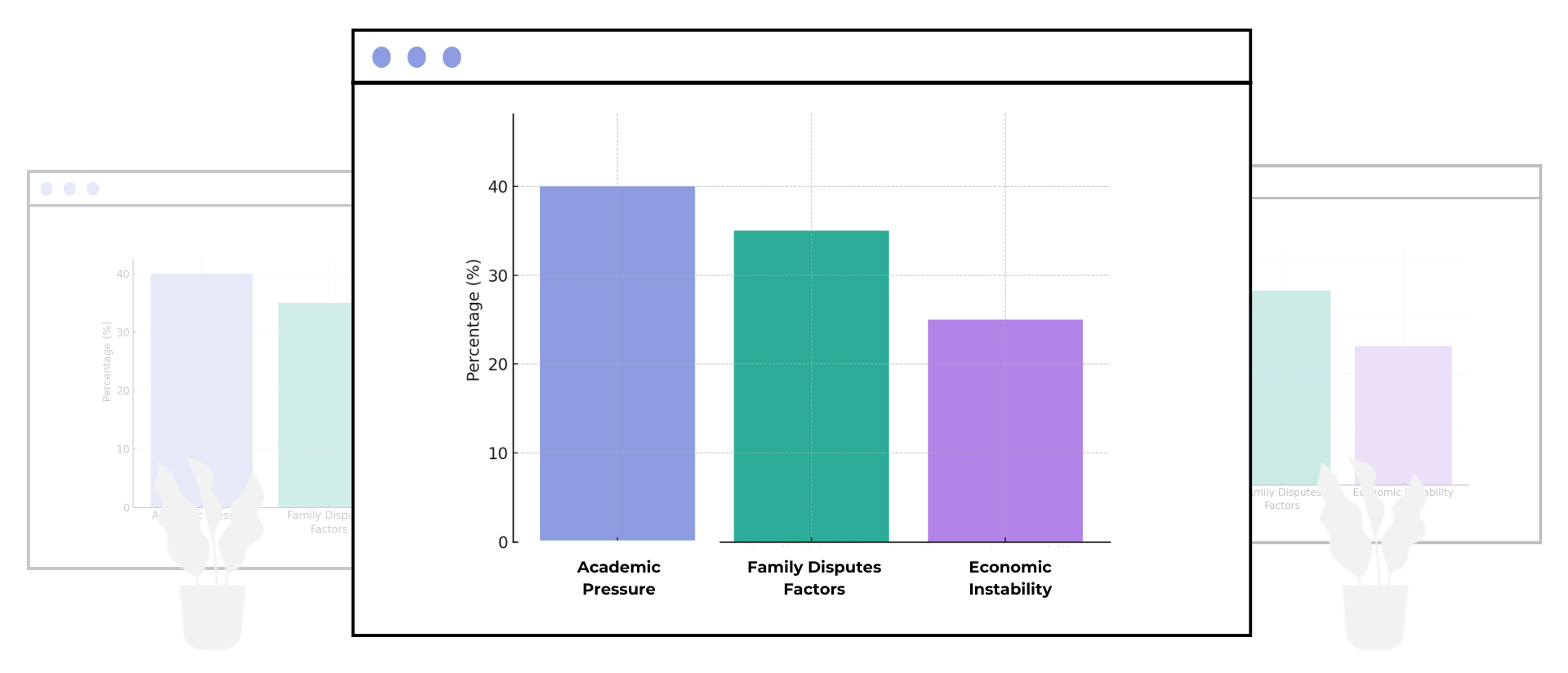
The Silent Struggles: Causes of Mental Health
Issues in Pakistan
Mental health issues in Pakistan are shaped by several factors, many of which are deeply ingrained in our culture. From the pressures of family expectations to the lack of mental health resources, the challenges are vast—but understanding them is the first step toward meaningful change.
Social Stigma and Lack of Awareness
The stigma surrounding mental health remains one of the most significant barriers to seeking help.
In many communities, mental illness is viewed as a personal weakness or even a spiritual failing, preventing individuals from opening up. This silence, compounded by ignorance, creates a dangerous cycle of shame and isolation.
Family and
Relationship Issues
Pakistan’s cultural emphasis on family often results in immense emotional pressure. Domestic violence, forced marriages, and
rigid social expectations can leave individuals, especially the youth, feeling trapped and helpless.
The majority of female suicides involve married women under the age of 30, often due to domestic issues.
Academic and
Workplace Stress
In a system that values academic and professional success above all, stress levels are skyrocketing.
Students face immense pressure to excel, while professionals struggle with long hours and job insecurity.
This stress is driving a rise in mental health issues among Pakistan's younger demographic.
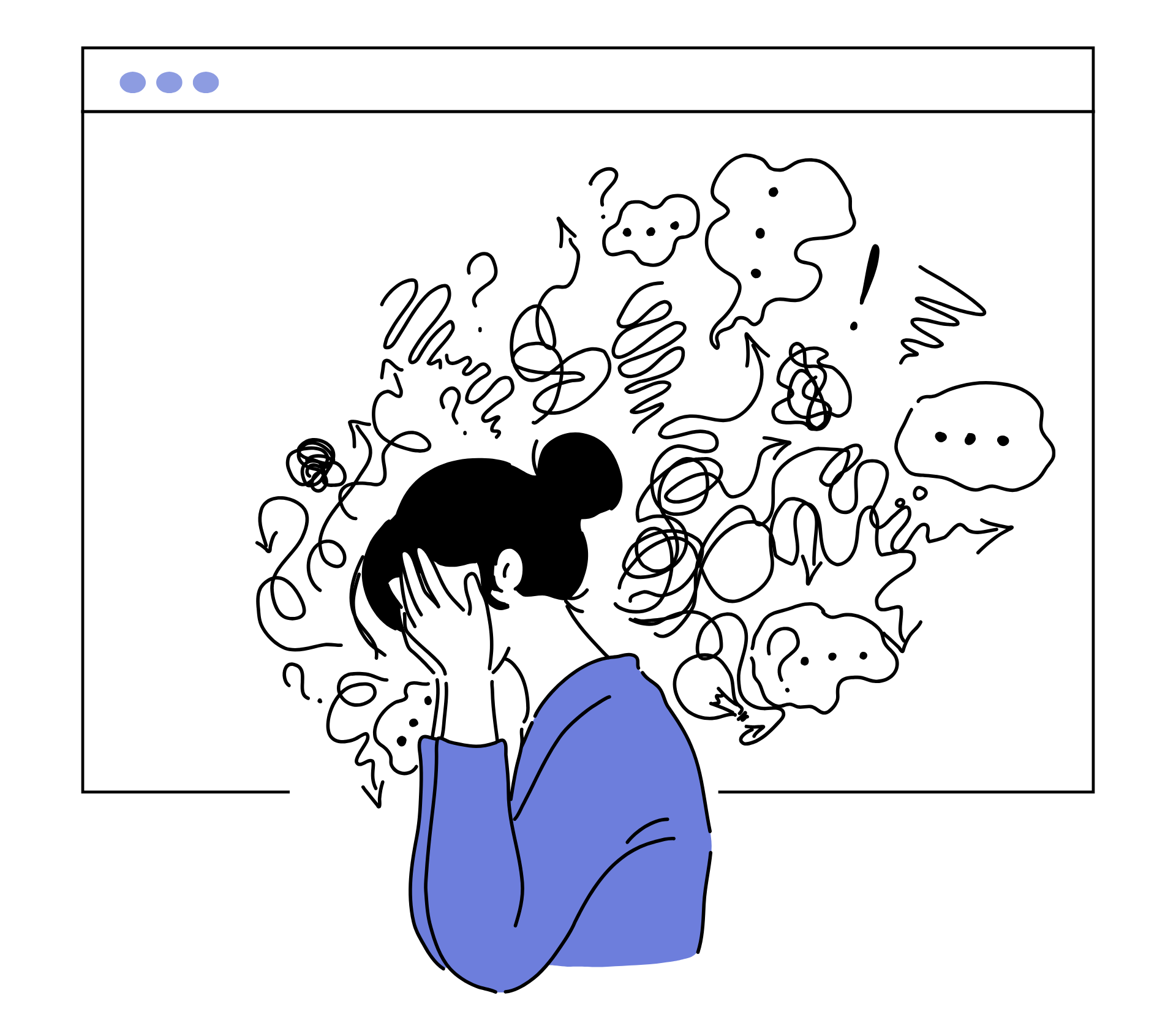
Lack of Mental Health Resources
The lack of adequate mental health resources in Pakistan is alarming. Only 0.04% of Pakistan's total health budget is allocated to mental health services, equating to an estimated $9.31 per capita. This leaves many without support. Rural areas, in particular, are severely underserved, leaving millions without access to counseling or the therapy.
Trauma and Abuse
From childhood abuse to the trauma caused by natural disasters, many Pakistanis face mental health challenges as a direct result of their past experiences. Events like the 2022 floods have induced profound grief, anxiety, loss, and fear, contributing to mental health challenges.

Religious and Cultural Misinterpretations
While Islam encourages both spiritual and medical care, many individuals seek spiritual remedies rather than medical treatment for mental health issues. This can delay proper care and lead to further distress.
Substance Abuse
Substance abuse is a growing issue, particularly as individuals turn to drugs or alcohol to cope with the stress of life. An estimated 5.8% of the population aged 15-64 used drugs in 2012, with cannabis being the most commonly used. However, this often worsens their mental health, creating a vicious cycle.
Media Influence
Media, especially social media, plays a significant role in shaping perceptions of mental health.
The glamorization of unrealistic lifestyles, cyberbullying, and sensationalized stories of suicides can fuel anxiety, especially among young people.
Breaking the Silence: What Can We Do?
Now, more than ever, it’s crucial for us to take action. Mental health struggles don’t have to be a silent battle by starting conversations and supporting one another, we can change the narrative.

Start Conversations at Home
Creating an open and supportive environment at home can be a game-changer. Encourage family members to share their feelings, and listen without judgment. When everyone feels heard, they’re more likely to reach out for help when needed.
Action Steps:
Establish "Feelings Time": Set aside a specific time each day or week where everyone in the family checks in with how they’re feeling, creating a regular, safe space for emotional sharing.
Normalize Mental Health Talks: Use simple, relatable phrases like “It’s okay not to be okay” or “We all go through tough times” to reinforce that it’s okay to talk about emotions without fear of judgment.
Lead by Example:
Be the first to share your own feelings. Modeling openness can encourage others to feel safe to do the same.

Build Emotional Resilience
Life’s challenges are inevitable, but how we respond to them can make all the difference. Teach your loved ones coping mechanisms like meditation, journaling, or mindfulness. These tools help build emotional strength and reduce the impact of stress.
Action Steps:
Incorporate Mindfulness Practices: Introduce small mindfulness exercises to the family, such as deep breathing or meditation, for just 5-10 minutes daily.
Create a "Stress-Free" Zone: Designate an area in your home as a space for relaxation or mental well-being activities like reading, yoga, or listening to calming music.
Encourage Journaling:
Buy journals for family members and encourage them to write down their thoughts, feelings, or even what they are grateful for. This can help process emotions constructively.
Recognize the Warning Signs
Mental health issues often manifest in subtle ways. Watch for changes in behavior—mood swings, withdrawal, or drastic shifts in habits. If someone expresses feelings of hopelessness or talks about self-harm, don’t wait. Take action and provide support, whether medical or emotional.
Action Steps:
Learn the Symptoms: Educate yourself and your family about the common signs of mental health struggles, such as drastic mood swings, withdrawal from activities, or changes in eating and sleeping patterns.
Check In Regularly: Don’t wait for someone to approach you. Regularly ask your family members how they’re doing, especially if you notice any of the signs of mental distress.
Encourage Professional Help: If someone is exhibiting warning signs of severe distress, encourage them to seek professional help. Offer to help them find a counselor or mental health professional if needed.
Strengthen Family Bonds
Spend quality time together. Whether it’s a family meal or a simple walk, bonding activities strengthen relationships and provide emotional support. Small acts of appreciation can go a long way in improving mental well-being.
Action Steps:
Plan Weekly Family Activities: Designate time each week to do something together as a family. This could be a meal, a movie night, a walk, or even a game night.
Express Appreciation: Make it a habit to verbally appreciate and acknowledge your loved ones for their efforts and qualities. A simple "thank you" or "I appreciate you" can go a long way in boosting someone's mental well-being.
Create a Gratitude Jar: Keep a jar in your home where family members can drop notes of appreciation or things they are grateful for. Read them together regularly.

Address Financial and Societal Pressures
Economic stress and societal expectations add tremendous pressure on individuals. About 12.4% of Pakistan’s population lives below the poverty line, and the unemployment rate stands at approximately 6%, contributing to financial stress and mental health challenges. Help your loved ones navigate these challenges by setting realistic goals, managing finances responsibly, and promoting personal growth over external achievements.
Action Steps:
Set Realistic Financial Goals: Help your family create a budget and set small, attainable financial goals. This can help alleviate financial pressure and reduce stress.
Promote Career Development: Encourage family members to pursue skills development or education programs that could increase employability and job satisfaction.
Celebrate Personal Growth Over Achievements: Shift the focus from societal measures of success (like grades or job titles) to personal growth. Celebrate efforts, persistence, and improvement, regardless of external outcomes.

It’s time to stop seeing mental health as a taboo. The first step is to start talking about it. Reach out to a loved one, check in on your friends, and seek professional help if you need it. Together, we can build a society where mental health is prioritized, and no one has to suffer in silence.
Mental health matters start the conversation today. Reach out for support or share this post to help raise awareness in your community. Together, we can break the silence.

Need Help?
🏠︎ Dolmen Executive Towers, Level 7
Clifton Block 4, Karachi, Pakistan
Postal Code 75600



